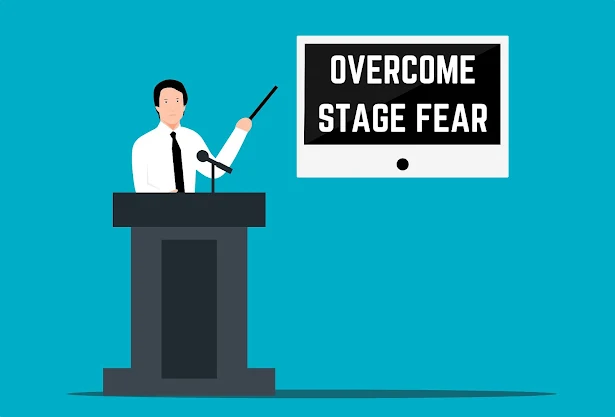Stage fright, or the fear of speaking in front of an audience, is a common experience even for seasoned speakers. While it's natural to feel nervous, there are effective ways to manage and overcome this anxiety. Here are some strategies to help you conquer stage fear and deliver a confident performance:
1. Prepare Thoroughly
One of the best ways to reduce anxiety is by knowing your material inside and out. The more prepared you are, the more confident you'll feel. Outline your speech clearly, practice it several times, and rehearse with notes or prompts if necessary. When you're well-prepared, you'll feel more in control.
2. Practice in Front of Others
Get comfortable with an audience by practicing in front of family, friends, or colleagues. Their presence will simulate the feeling of performing in front of a live audience, helping you to adjust to being watched and listened to. You can also ask for feedback to improve your delivery.
3. Visualize Success
Visualization is a powerful technique to calm your nerves. Before your speech, close your eyes and imagine yourself delivering a confident and successful performance. Picture the audience responding positively and yourself feeling calm and in control. This positive mental rehearsal can boost your self-assurance.
4. Use Deep Breathing Exercises
Deep breathing helps reduce physical symptoms of anxiety, such as a racing heart or shaky hands. Before going on stage, take a few slow, deep breaths, inhaling through your nose and exhaling through your mouth. This can calm your nerves and help regulate your breathing during your performance.
5. Turn Nervousness into Energy
Instead of trying to eliminate all your nervous energy, channel it into your performance. A little adrenaline can actually help you speak with more passion and enthusiasm. Focus on using that nervous energy to engage your audience and bring your speech to life.
6. Focus on Your Message, Not Yourself
Stage fear often stems from a fear of judgment, but remember that the audience is there to hear your message, not to critique you personally. Shift your focus away from worrying about how you’re being perceived and concentrate on delivering valuable information or an inspiring story. This will ease the pressure on yourself.
7. Start Small
If the thought of speaking to a large group overwhelms you, start with smaller audiences to build your confidence. Whether it’s in a classroom, a team meeting, or a small group of friends, begin by speaking in front of a few people and gradually increase the size of your audience as you grow more comfortable.
8. Arrive Early and Familiarize Yourself with the Space
Arriving early gives you time to adjust to the environment. Walk around the stage, test any equipment, and get a feel for the space. Familiarizing yourself with the room can help reduce the fear of the unknown and make you feel more comfortable when it’s time to speak.
9. Accept Imperfection
No speech is ever perfect, and that’s okay. Accept that you might make small mistakes, and remember that most of the audience won’t even notice them. If you stumble over a word or lose your place, stay calm, take a breath, and continue. Don’t let perfectionism hold you back from delivering a powerful message.
10. Engage with Your Audience
Building a connection with your audience can help ease your nerves. Make eye contact, smile, and look for friendly faces in the crowd. When you see people responding positively, it will boost your confidence. You can also ask questions or involve the audience to make the speech feel more like a conversation.
11. Focus on the Present Moment
Stage fear often occurs when we worry about the future — about making mistakes or being judged. Try to stay in the present moment. Focus on the words you’re saying and the message you’re delivering. By concentrating on each sentence as it comes, you’ll be less likely to get overwhelmed by anxiety.
12. Practice Self-Compassion
Be kind to yourself. Everyone feels nervous before speaking in public, and it’s okay to experience those emotions. Instead of beating yourself up for feeling anxious, remind yourself that it’s a normal part of the process. With practice, your stage fear will lessen over time.
Conclusion
Overcoming stage fear takes practice, but by preparing thoroughly, using relaxation techniques, and focusing on your message rather than your fears, you can manage your anxiety and deliver a confident, engaging performance. Remember, the key to overcoming stage fear is to practice consistently, stay patient with yourself, and embrace each opportunity to improve your public speaking skills.

